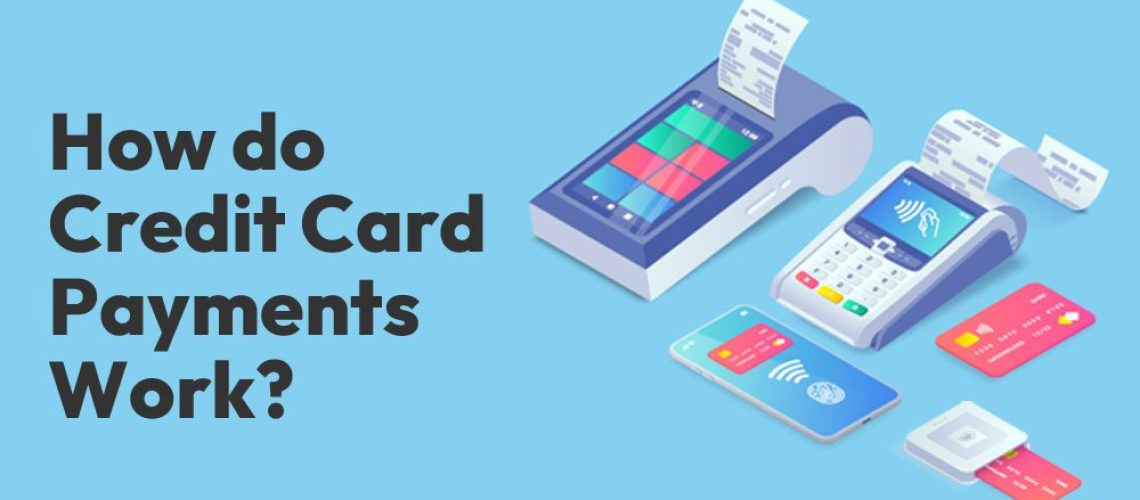
Our infographic on “How Do Credit Card Payments Work?” provides a clear and concise explanation of the authorisation and settlement process, interest calculation, and payment options.

As a customer, when you purchase with a credit card, you are essentially borrowing money from the issuing bank. You must repay the borrowed amount along with any interest and fees within a specific period, usually 30 days. To initiate a credit card payment, you must present the card to the merchant at the time of purchase.
The merchant then uses a device or software to transmit the credit card information to their acquiring bank. The acquiring bank is responsible for managing the merchant’s account and ensuring the funds are transferred from the customer’s account to the merchant’s account.
Once the acquiring bank receives the credit card information, it sends the data to the payment network. The payment network acts as a middleman between the acquiring and issuing banks, facilitating the transaction process. Some examples of payment networks include Visa, Mastercard, American Express, and Discover.
The payment network checks the available credit on the card and sends an authorisation request to the issuing bank. If the issuing bank approves the transaction, it sends a message to the payment network authorising the purchase. On the other hand, if the issuing bank denies the transaction, the payment network sends a decline message back to the merchant.
Once the transaction is authorised, the issuing bank transfers the funds to the payment network, which in turn transfers the funds to the acquiring bank. The acquiring bank then credits the funds to the merchant’s account.
Every transaction involves various fees, including interchange, card scheme, and processing fees. The interchange fee is a fee the payment network charges to the acquiring bank for processing the transaction. The card scheme fee is a fee the payment network charges to the issuing bank for providing access to its network. Finally, the processing fee is a fee the acquiring bank charges to the merchant for processing the transaction.
Credit card payments involve several key players, including the customer, the merchant account, the acquiring bank, the payment network, and the issuing bank. Understanding how credit card payments work can help you make informed decisions when it comes to using your credit card and managing your finances.

As a Merchant Service Provider located in Nottingham, we pride ourselves on taking a unique approach. We offer something that many providers shy away from: a clear and transparent selection process that’s upfront and honest.
Directory of Nottingham Financial Services
Suite 14
Arnold Business Centre
Brookfield Road
Arnold
Nottingham
NG5 7ER.